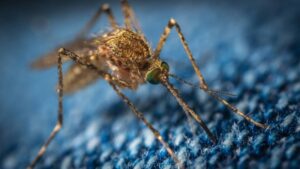Are you allergic to mosquitos? Do you know if you are allergic?
You may not know if you are or not, as just about everyone finds them annoying and has some reaction to their bite. If you feel that you have a more severe reaction than most, however, there is a chance that you could be allergic. First, let’s get some background about our summertime friends and where we all might run into each other.

Where do mosquitos live?
Outside Iceland, there is a good chance that you will run into mosquitos no matter where you decide to travel. Brazil, Indonesia, Malaysia, and Thailand are believed to have the highest number of them Australia, Indonesia, the Philippines, and Brazil are recorded to have the highest number of endemic species.
If you are worried about more serious illnesses associated with mosquitos, such as malaria, then you want to avoid Africa, South America, and Asia. These continents are where most mosquito-borne diseases occur; Africa accounts for 90% of all malaria deaths.
If traveling within the country, remember, there are about 200 different species of mosquitoes in the United States, which live in specific habitats, exhibit unique behaviors, and bite different types of animals. These mosquitoes, like most, can be found near various types of standing water.
Traveling? Book your trip here and save!
Anatomy of a Mosquito Bite
Before we get into allergies, let’s start with the basics. Mosquito bites can occur anywhere on your body. A combination of carbon dioxide and body heat attracts the insects to the skin. Because of the summer heat, we usually wear clothes that expose our arms, legs, and face; therefore, these areas usually contain the majority of the bites.
When a mosquito pierces your skin with its needle-like mouthpart, it injects saliva to prevent your blood from clotting. This saliva triggers the itchiness and irritation associated with the reaction to the bite.
The mosquito’s saliva contains proteins that cause an immune response in our bodies, leading to localized swelling and itching. In the following days, there may also be a reddish-brown bump or multiple bumps appearing after the initial puffy redness. Fun fact: a person may have different reactions to different species of mosquito saliva,
Are You Allergic to Mosquitos?
While most people experience mild irritation and temporary swelling from mosquito bites, others may have an allergic reaction beyond the usual discomfort. Symptoms of mosquito bite allergy can include the following:
- excessive swelling
- redness extending beyond the bite area
- hives
- difficulty breathing
- Swollen lymph nodes
- low-grade fever
- body aches
- Signs of infection
How to Prevent Mosquito Bites
If you are allergic or just someone who hates mosquito bites, you probably have tried all kinds of tricks to avoid getting them. No matter how much effort you put out, there always seem to be a few that can still get to you, as complete avoidance is nearly impossible.
There are several effective strategies to minimize their impact on your life. Here are some tried and tested tips:
- Use insect repellent: Apply an effective mosquito repellent that contains DEET or picaridin to exposed skin to deter mosquitos from biting.
- Cover up: Wear long-sleeved shirts, long pants, and socks to reduce the amount of exposed skin.
- Eliminate standing water: Mosquitos breed in stagnant water, so make sure to empty any containers that collect water around your home.
- Install screens and mosquito nets: Keep doors and windows covered with screens to prevent mosquitos from entering your living spaces.
- Install mosquito zapper: On the deck or near the BBQ, lure mosquitos permanently away and away from your skin.
- Mosquitos feed during certain times of the day. Be mindful of this when outside.
How to Stop Mosquito Bites from Swelling
While the above tips may reduce the number of bites you get, as mentioned above, there always seem to be a few that will get to you. It is nearly impossible to not get exposed to mosquitos, but there are actions you can take that can prevent swelling and get you feeling better.
To prevent swelling you can take a 24 hour antihistamine such as Zyrtec, Claritin, Xyzal, or Allegra . This works best if done before you are bitten but can also help after. Also consider applying a topical steroid. Hydrocortisone cream is available over-the-counter or you can always get a prescription for a stronger steroid from you Dermatologist or regular medical provider.
If the above items and resources are not available there are a few items you may have around the house that could help. Rubbing salt into bites can help with itch. Applying an ice pack to the sport for ten minutes can help, and for the itching, a mixture of baking soda and water applied may also help. If you happen to have calamine lotion in your cabinet, you may try applying that to the spot also.
When to See a Doctor When Allergic to Mosquitos
If you’re allergic to mosquitos and experiencing a severe reaction, it’s crucial to consult a healthcare professional immediately.
An allergist or dermatologist can provide you with a proper diagnosis, offer guidance on managing your symptoms, and recommend allergy testing to identify any other potential allergens.
At Aglow Dermatology our Manhattan skin specialist, board-certified Dr. Dina Strachan can provide you with answers and a proper diagnosis when it comes to mosquito bites or many other skin conditions.
Aglow also offers allergy testing. If you feel that you may suffer from food or environmental allergens be sure to check out our allergy testing NYC page or call us to make an appointment.
Some links on this page are affiliate links, meaning, by clicking on them you help support our business and no extra cost to you!


